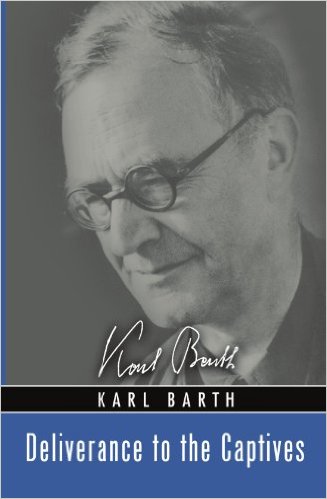The theology and influence of Karl Barth: an interview with Terry Cross
PR: What should church leaders learn from Barth?
Terry Cross: Church leaders could and should learn that Scripture must be our guide for doctrine and practice. One example will suffice. As a Reformed pastor and theologian, Barth followed the line of the Reformation from John Calvin. Most of the major Reformers continued with infant baptism and the Reformed movement continues with it to this day (as do Lutherans and followers of Zwingli). So Barth taught infant baptism and practiced it in his church. However, in the 1940s he began reconsidering this teaching. His son, Markus, was doing a doctoral dissertation that questioned whether infant baptism could be supported as a sacrament in the New Testament. This influenced his father greatly. However, Barth’s own theology was headed toward a need for the miraculous act of grace in a person’s life to have a human response. He felt baptism was that human response, not a magical ticket into the kingdom or even the church. In countries where infant baptism essentially was the same as being a citizen of that nation, Barth believed Christianity was experiencing in Europe the deadening effects of infants who were baptized but not connected with Christ or discipleship. Therefore, to great personal and professional criticism, Barth writes in Dogmatics IV/4 (fragment) that infant baptism should be discontinued and proposes a theological way to go forward.
If church leaders would earnestly search the Scriptures and not simply practice traditions or teach doctrines that came from some cultural context, I think there would be a wonderful move of revival in the land.
PR: Where should English readers get started if they want to read Barth?
Terry Cross: Allow me to suggest two possibilities:

- Barth sermons, especially Deliverance to the Captives—his prison sermons from the 1950s.
- Barth’s Conversations. Currently, these are only in German in Barth’s collected works. They are called Gespräche (Conversations) and are in 3 volumes: 1957-1962; 1963; and 1964-1968. A group of translators (of which I am happy to say I have been a part) at the Center for Barth Studies has worked on translating these volumes into English since 2008. I must say that one gets the best of Barth’s thinking in these volumes, but in the language of a conversation—either with other theologians in large groups or with media figures who interview him. The first of these volumes (1957-1962) is almost entirely done and at the copy editor for final proofing. It should be available, perhaps within a year.
Of course, hearty souls could always jump into to the Church Dogmatics I/1… but that is not for the faint of heart!
Category: In Depth, Summer 2015


